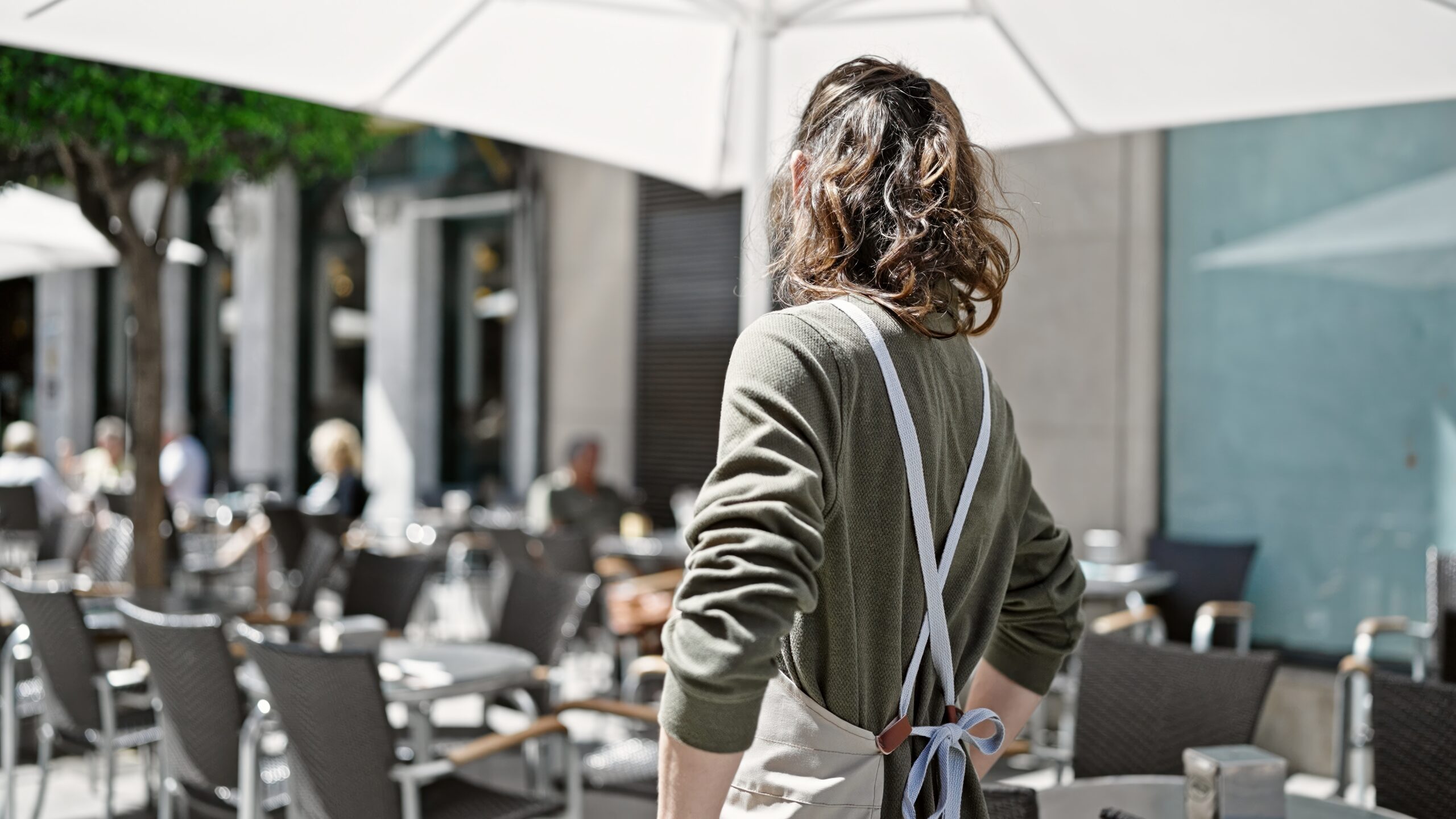Tuition fees have gone up by over 9 per cent to 2,530 euros, and the basic grant for students living away from home is going down from 467 to 302 euros. So the cost of being a student is going up. How are students solving this?
Not by borrowing
Casper Cats (19), BSc student of Marine Sciences
How politicians can decide to abolish the grant supplement that was introduced to compensate for inflation, when you read every week in the news how bad inflation is getting, is something I really can’t get my head around. But okay, studying has got a lot more expensive and we’ll just have to deal with it. How am I going to do that? Not by borrowing; I don’t believe in that. I get a bit of support from my parents and I don’t spend much. Recently I’ve been earning a bit from football, in my home town Almere. You get a bonus if your side wins a match. I go back to Almere three times a week, to train and to play matches. Then I eat at home, which saves some money too. And I’ve decided to do lots of paid work every summer. No real holiday then, but financial stability at the start of the new academic year.’
Job on top of the board work
Yara Linnekamp (23), MSc student of Forest and Nature Conservation
‘Outside school and uni hours I’ve been working in a supermarket since I was 16. I started on my pre-master in 2022, and took a room in Wageningen. At the moment I’m doing a year on the board of Argo, which I spend about 60 hours a week on. And I still try to work alongside that: anything to have as small a debt as possible when I’m done. As a board member I get the FOS financial support, which is roughly enough to cover my tuition fees with a little bit left over every month. After this board year I’ve still got a year and a half to go, without a grant because I won’t qualify for one anymore. I don’t want to borrow any more but if I have to, I’d rather borrow from family than from the government.
‘The basis grant was reintroduced last year. A good decision, but if the government screws the student loans generation even more by increasing the interest rate on their loans, I think: how can you be like that? It is so unfair.’
Living on the cheap
Hugo van Driel (18), BSc student of Environmental Sciences
‘I’ve only just started at uni, so I haven’t noticed that the basic grant has gone down. I can pay my rent and other living costs from everything I get from the government: the basic grant and housing benefit. Beyond that, I try to live cheaply. I budget 3 to 4.50 euros a day for food. That is tight, but I try to bulk-buy things on special offer and cook large quantities, some of which I freeze for later.
‘At Argo rowing club I spend 4.50 euros a week on food, plus money for activities and membership fees. Because I worked a lot in the last summer holiday, I’ve got a reasonable buffer. But there isn’t much extra money coming in now. I tutor secondary school students and sometimes I’m hired to take photographs at parties, but that doesn’t pay very well. My buffer is shrinking, so I’ll either have to borrow or find a way of earning a bit more. But my studies and Argo are a lot already, so a job on the side will leave me short of time.’
A well-paid job
Femke * (25), an MSc student of Geo-information Science
‘As a student from the generation that had loans rather than grants, I’ve always had jobs on the side to avoid ending up with too big a debt. First they were typical student jobs like working in a restaurant, but during the pandemic I started working for the health service. That paid well and since then I make sure my side jobs are enjoyable and well-paid. Last summer I worked enough to cover my spending for six months. I’m also a student assistant, which pays better than other side jobs. I’m amazed at how some students are satisfied with jobs that don’t pay well. It’s possible to find better paid jobs in which you make a useful contribution to society if you look for them.
‘I’ve nearly finished my Master’s and I’ve earned enough to pay off my student debt. I won’t do that because I fixed my interest rate at 0.46 per cent. Investing in index-linked funds earns you an average of 7 per cent per year, so that is far smarter financially than paying everything off straightaway.’
Borrowed the max
Pieter* (27), MSc student of Biology
‘When I turned 18, I got a nice sum of money from my family for my student years. For a long time, I also borrowed the maximum amount, with the idea that the interest on that money made borrowing advantageous. So I always had a nice amount in the bank. My spending habits were quite free and easy as a result: if I needed a new laptop or some equipment for DJ-ing, I didn’t give it much thought. I had the money.
‘Two years ago, I realized that the interest wasn’t bringing in much, and I stopped borrowing. Since then, my bank balance has been shrinking as there’s nothing coming in, while I am still spending. I’ll have finished my degree in a couple of months. I’ve built up a big debt. Do I wish I’d done more jobs on the side? Maybe, but mainly for the experience. And I have always done a lot of stuff on a voluntary basis, and I’m in a DJ collective. I’ve made the most of the time that I could do these things. I’ll pay that debt off later when I’ve got a job.’
*Full name known to the editors

 Many students work alongside their studies. But the time they work, they cannot spend studying. A dilemma. Photo Shutterstock
Many students work alongside their studies. But the time they work, they cannot spend studying. A dilemma. Photo Shutterstock 

